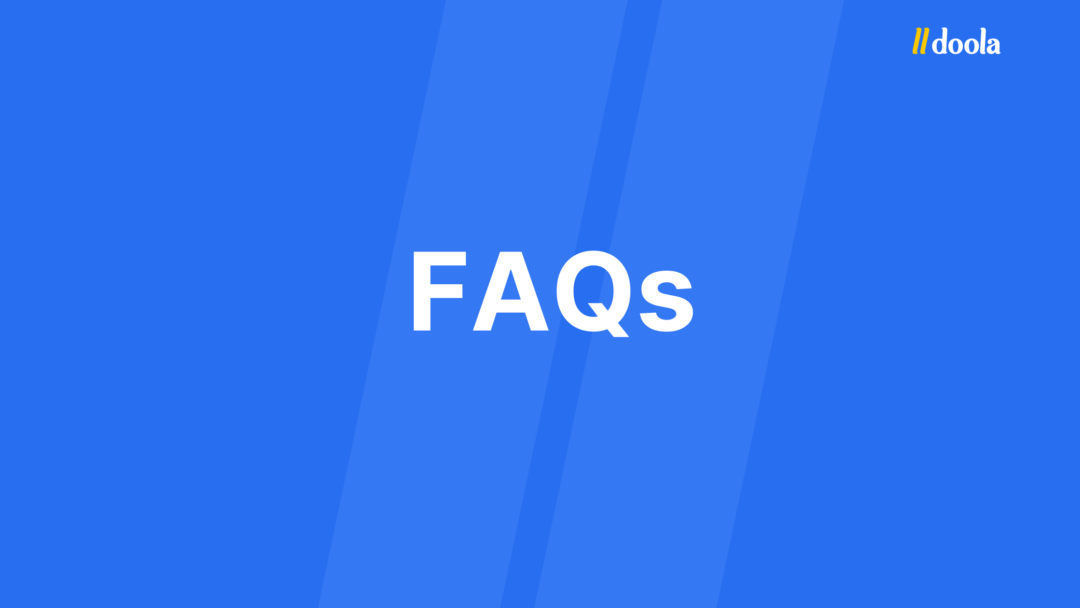Language:
Ecommerce Bookkeeping Software for Shopify Sellers

Running a Shopify store? Oh, we get it — you’ve got a lot on your plate. Marketing campaigns, managing inventory, restocking bestsellers, prepping for Black Friday madness..it’s a never-ending list of things demanding your attention.
And honestly? Bookkeeping usually takes a back seat, not because you don’t care, but because chaos has a way of making you forget what’s not screaming for attention.
But here’s the thing — you can’t afford to let bookkeeping slide. Messing up your numbers can be costly, and no one wants to deal with that.
So, why not hand it over to a powerful, easy-to-use ecommerce bookkeeping software built just for Shopify sellers like you?
Now, we know what you’re thinking: “How do I choose the right one?”
Don’t worry, we’ve got you. This guide breaks down everything you need to know about finding the perfect ecommerce bookkeeping software for your Shopify store.
Spare a few minutes, and we’ll help you make sense of it all.
And if you’re still unsure? We’re just a call (or demo) away.
Let’s get you sorted!
What Is Ecommerce Bookkeeping Software?

Ecommerce bookkeeping software can be considered as a standard accounting app. It’s designed specifically for the unique challenges of online businesses.
Whether it’s tracking sales from multiple channels, calculating fees, or keeping up with fluctuating taxes, this software does all the accounting related tasks for you.
Most ecommerce bookkeeping tools connect directly to platforms like Shopify, syncing data such as sales, transaction fees, and taxes automatically.
This eliminates manual entry (and the errors that come with it) while giving you a clear view of your financial picture.
Key Features to Look for in Ecommerce Bookkeeping Software
Here are a few features that you should consider while picking your ecommerce bookkeeping software:
Shopify Integration
The best ecommerce bookkeeping software and tools can sync effortlessly with Shopify, automatically pulling in daily data like sales, payouts, and fees.
By centralizing this information, the software ensures your financial records are always accurate and up-to-date, saving hours of manual entry and significantly reducing the risk of bookkeeping errors.
Real-time Updates
Your financial data should move at the speed of your business. With real-time syncing, every new sale, Shopify fee, shipping cost, tax adjustment, or payout is automatically updated in your bookkeeping software the moment it happens.
This means your financial records are always accurate, eliminating delays and ensuring you have up-to-date insights whenever you need them.
Tax Compliance Tools
A robust ecommerce bookkeeping software will calculate taxes for different regions, generate reports, and even integrate with filing services to make your life easier.
Expense Categorization
Every ad spend, platform fee, or subscription cost needs tracking. Advanced ecommerce bookkeeping software should be able to automatically categorize these expenses, so you can identify where your money is going and where you might need to cut back.
Reporting and Analytics
Reporting capabilities in ecommerce bookkeeping software analyze patterns in your sales, expenses, and customer behavior.
For example, these features can reveal which products are your best sellers, which seasons drive the most revenue, and how discounts impact your overall profit margin.
Scalability
Scalability in ecommerce bookkeeping software means the ability to grow with your business seamlessly.
It should integrate with additional sales channels like Amazon or Etsy as you expand, handle increasing transaction volumes without errors, and provide customizable reporting to track performance across platforms.
Benefits of Using Ecommerce Bookkeeping Software for Shopify Sellers

Managing your Shopify store’s finances shouldn’t feel like a constant uphill climb.
Ecommerce bookkeeping software can make all the difference by taking tedious tasks off your plate and giving you clearer insights into your business.
Here’s why it’s worth considering:
✅ Free Up Your Time: Automating everyday bookkeeping tasks lets you focus on growing your store, not crunching numbers.
✅ Improve Accuracy: No more worrying about typos or mismatched figures. Automation ensures your records stay clean and error-free.
✅ Stress-free Tax Prep: With your financial data organized and ready, tax season stops being a mad dash and becomes just another step in the process.
✅ Spot Costly Gaps: Get a clear picture of where your money is going and identify opportunities to increase your profit margins.
✅ Grow Without Overwhelm: Whether you’re adding sales channels or handling a higher order volume, good software scales with you, so the numbers stay manageable no matter what.
Related Read: Shopify Bookkeeping Guide for 2025
Top 3 Ecommerce Bookkeeping Software for Shopify Sellers
Here’s a look at three of the top bookkeeping tools for Shopify sellers:
1. doola Bookkeeping: Your All-in-One Solution
doola Bookkeeping is built to handle the unique challenges Shopify sellers face. Whether you’re running a small shop or scaling to new heights, it provides practical tools and dedicated support to streamline your financial management.
What Makes doola Different:
Seamless Shopify Integration: Sync your sales, expenses, and taxes automatically with your Shopify store for an up-to-date view of your finances.
Expense Tracking Made Easy: You can quickly sort expenses like marketing, shipping, and inventory to see exactly where your money goes.
Sales Tax Simplified: No more juggling sales tax calculations — doola does it for you, even across different states or countries.
Dedicated Human Support: Get a personalized account manager who knows the ins and outs of Shopify bookkeeping and is always ready to help.
US Business Bank Account Setup: If you’re selling from abroad, doola helps set up a US business bank account to simplify financial management.
Custom Reports: Access profit-and-loss statements, cash flow insights, and financial forecasts that keep you in control of your business.
With a 4.6-star rating on Trustpilot and backing from industry giants like Y Combinator, doola is a trusted partner for Shopify sellers who want to simplify their bookkeeping.
2. Xero: A Flexible Accounting Tool for Growing Businesses
Xero is a flexible, cloud-based accounting software designed for businesses that need room to grow. Its user-friendly interface and strong feature set make it a go-to for Shopify sellers handling increasing sales and complexity.
Key Features:
Inventory Tracking: Monitor stock levels and costs directly from your Xero dashboard.
Expense Management: Quickly capture receipts and categorize expenses to stay on top of your spending.
Bank Reconciliation: Automatically match transactions with your bank feeds, saving time and reducing errors.
Multi-Currency Support: Perfect for international sellers, Xero tracks foreign transactions and converts currencies automatically.
3. QuickBooks Online: A Comprehensive Tool for Established Sellers
QuickBooks Online is one of the most popular accounting tools, trusted by millions of small businesses, including Shopify sellers. It’s packed with advanced features that help you manage every aspect of your finances.
Key Features:
Detailed Reporting: Generate insights into sales, expenses, and profits with customizable reports.
Sales Tax Tracking: Automatically calculate and track sales tax for various regions.
Payroll Management: Manage employee wages, overtime, and taxes without needing additional software.
Third-Party Integrations: Connect Shopify, Stripe, PayPal, and other platforms for smooth financial management.
Learn More: Shopify Bookkeeping Guide: Tools and Tips for Store Owners
How to Choose the Right Bookkeeping Software for Your Shopify Store

Finding the right ecommerce bookkeeping software needs work, research and time.
It’s about choosing something that actually fits your needs and simplifies your life.
Here’s how to narrow it down:
Shopify Integration Is Non-Negotiable
First things first: your software has to sync with Shopify. No one has time for manual data entry, and trust us, you don’t want to risk the errors that come with it. Automatic syncing for sales, fees, taxes, and payouts is a must.
It Should Be Easy to Use
If your ecommerce bookkeeping software is complicated, it’ll just gather dust. Your bookkeeping software should feel intuitive without many layers of features.
Handles Taxes Without the Drama
Sales tax always invites complexities, especially when you’re selling in multiple states or countries. The right software will handle calculations and generate ready-to-go reports, so tax season doesn’t turn chaotic.
Grows With Your Business
You’re not in this to stay small, right? Your ecommerce bookkeeping software should keep up as you add more sales channels, handle bigger transaction volumes, or even go global.
Gives You Smart Insights
You don’t just need numbers; you need to know what those numbers mean. Look for reporting features that break down profit-and-loss, cash flow trends, and even seasonal patterns. These insights will help you make smarter business decisions.
Offers Real Support When You Need It
No matter how user-friendly the software is, questions will come up. Make sure there’s customer support — live chat, email, or even a dedicated account manager — so you’re not left stressed.
Fits Your Budget Without Compromising Features
Finally, don’t forget the price tag. Many tools offer flexible pricing or even free-mium plans to get you started. Start small if you have to, but make sure there’s room to scale up when your store starts getting maximum profits.
Simplify Your Shopify Finances With doola Bookkeeping

Bookkeeping doesn’t have to be that process you dread every month. With doola Bookkeeping, managing your finances becomes a whole lot easier.
With doola, no more frantic scrambles, no more sleepless nights over spreadsheets—just easy, straightforward accounting that works.
Book a demo with doola today and see how simple managing your Shopify store’s finances can be.
FAQs

What is the best ecommerce bookkeeping software for Shopify sellers?
For Shopify sellers, doola is a top choice. It offers seamless Shopify integration, automated expense tracking, and sales tax management, making bookkeeping stress-free and tailored to your needs.
Can I use general accounting software for my Shopify store?
Yes, but general accounting software often lacks the specific features needed for Shopify. Dedicated ecommerce bookkeeping tools sync directly with Shopify, handle transaction fees, and streamline tax compliance, which general tools may not support.
Do I need bookkeeping software if I’m just starting out?
Absolutely. Starting with bookkeeping software helps you stay organized from day one, preventing financial mistakes and saving time as your business grows. It’s an investment that pays off in the long run.
How much does ecommerce bookkeeping software typically cost?
Prices vary, but most tools range from $13 to $50 per month for basic plans. Advanced features or customizations may increase costs, but many tools offer freemium options to get you started.
How does bookkeeping software help with tax compliance?
Bookkeeping software automatically calculates sales tax, generates tax-ready reports, and tracks compliance across different states or countries, reducing errors and ensuring you’re always prepared for tax season.



